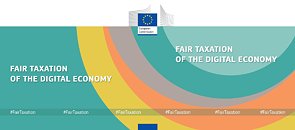
GeForce RTX 4080 SUPER Custom Model €1109 MSRPs Appear on German Webshop
European buyers are facing a baseline MSRP of €1109 for the upcoming GeForce RTX 4080 SUPER graphics card family, thanks to extra sales taxes affecting purchases in the region's various countries. North American customers are set to "enjoy" a more reasonable entry point of $999 come January 31, including various custom options from NVIDIA's board partners—ZOTAC lead the charge with their non-overclocked offerings matching Team Green's Founders Edition MSRP. A small selection of brave retailers have already delivered GeForce RTX 4080 SUPER graphics cards to customers, while others have simply gone live with their asking prices.
Germany's Notebooksbilliger (translation: cheaper laptops) online store has produced product pages for all sorts of custom GeForce RTX 4080 SUPER cards—prices start off at NVIDIA's €1109 baseline, and ramp up to a maximum of €1379 for the fanciest option (ASUS ROG STRIX RTX 4080 SUPER OC). A VideoCardz report focuses mostly on the cheapest products listed by Notebooksbilliger.de. Five non-overclocked custom designs sits at the bottom of the webshop's RTX 4080 SUPER pricing pile: ASUS TUF GAMING, GIGABYTE SUPER WINDFORCE, SUPER WINDFORCE V2, Inno3D X3 and ZOTAC's Trinity Black Edition. At the time of writing, Notebooksbilliger's customers cannot pre-order any of the listed GeForce RTX 4080 SUPER cards—the full checkout process could be unlocked early next week, a few days ahead of the official January 31 launch day.
Germany's Notebooksbilliger (translation: cheaper laptops) online store has produced product pages for all sorts of custom GeForce RTX 4080 SUPER cards—prices start off at NVIDIA's €1109 baseline, and ramp up to a maximum of €1379 for the fanciest option (ASUS ROG STRIX RTX 4080 SUPER OC). A VideoCardz report focuses mostly on the cheapest products listed by Notebooksbilliger.de. Five non-overclocked custom designs sits at the bottom of the webshop's RTX 4080 SUPER pricing pile: ASUS TUF GAMING, GIGABYTE SUPER WINDFORCE, SUPER WINDFORCE V2, Inno3D X3 and ZOTAC's Trinity Black Edition. At the time of writing, Notebooksbilliger's customers cannot pre-order any of the listed GeForce RTX 4080 SUPER cards—the full checkout process could be unlocked early next week, a few days ahead of the official January 31 launch day.














